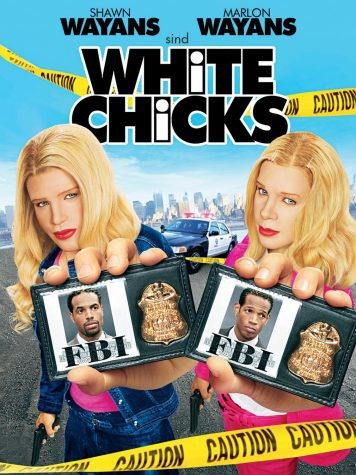The 2004 comedy hit, White Chicks, recently resurfaced in my viewing experience, this time shared with family. While the laughs were still present, watching it through a 2024 lens brought forth a stark realization: certain comedic elements, and even the core premise of the movie, might not resonate—or even be acceptable—in today’s socially conscious environment. The film centers around two Black FBI agents, Marcus (Marlon Wayans) and Kevin Copeland (Shawn Wayans), who go undercover as wealthy white sisters, Brittany and Tiffany Wilson. This transformation, while played for comedic effect, is laden with aspects that spark debate in contemporary society.
One of the most immediate points of contention arises from the central role reversal itself. The film hinges on Black actors portraying white women. In 2024, this casting choice would undoubtedly face scrutiny. The dual layer of race and gender transformation is a significant element. While the humor derives from the brothers’ struggles to embody these characters, the premise itself could be interpreted as problematic by some viewers.
The film’s approach to gender is also nuanced. While today we see increased representation and understanding of transgender identities in media like Transparent, Romeos, and Southern Comfort, White Chicks isn’t aiming for that kind of representation. It leans more into the realm of drag, where men dress as women for performance and entertainment. However, even within this context, the film can elicit diverse reactions. Some viewers may appreciate the comedic exaggeration and performance, while others might find humor in men dressing as women to be inherently offensive or stereotypical.
A particularly noteworthy scene highlighting potentially outdated humor is when Marcus, as Tiffany, experiences catcalling at the hotel. Shortly after, Kevin, as Brittany, faces similar objectification. Their reactions, a confrontational “you wanna fight?”, while intended to be humorous, underscore the uncomfortable reality of men objectifying women. This theme is further amplified by the character of Latrell Spencer (Terry Crews).
 Terry Crews as Latrell Spencer in White Chicks, comically reacting to a drink.
Terry Crews as Latrell Spencer in White Chicks, comically reacting to a drink.
Latrell’s storyline presents another layer of potentially problematic content. He essentially “buys” a date with Tiffany (Marcus), and his character embodies exaggerated stereotypes of a hyper-masculine, womanizing Black man. The date scene involves him ordering oysters, known for their aphrodisiac qualities, and attempting to slip a substance into Tiffany’s drink with the clear intention of manipulating her arousal. While Marcus cleverly thwarts this plan by switching the drinks, leading to a humorous scene of Latrell dancing wildly, the underlying scenario touches upon serious themes of date rape and predatory behavior.
The film also features a scene that has become a point of discussion regarding racial sensitivity. In a car with the Wilson sisters’ friends, Vanessa Carlton’s pop song “A Thousand Miles” plays. When Marcus and Kevin fail to sing along, revealing their unfamiliarity with the “White Chicks Song,” the white women switch the station to a rap track. Marcus and Kevin enthusiastically join in, rapping along and using the n-word as it appears in the song’s lyrics. The white characters are visibly shocked and disapproving. Kevin’s subsequent line, “no one’s around to hear it,” before all five join in using the slur, is particularly jarring in a contemporary context. This scene, attempting to be comedic through racial role-reversal and perceived hypocrisy, is likely to provoke strong negative reactions today, given the heightened awareness around racial slurs and cultural appropriation. The casual use of the n-word, even within a comedic framework, is now widely considered unacceptable, especially coming from non-Black individuals, regardless of the comedic scenario.
Overall, White Chicks remains a source of laughter for many, largely due to the over-the-top performances and farcical situations. However, when viewed through the lens of 2024, the film’s humor is undeniably intertwined with potentially offensive stereotypes and scenarios that clash with current social norms. While discussions about a sequel have circulated, the Wayans brothers and any potential collaborators would undoubtedly need to navigate a very different comedic landscape than the one in which White Chicks was initially released. The question isn’t just whether a White Chicks 2 could be made, but whether it should, and if so, how it could adapt its comedic style to resonate with—and not alienate—a modern audience.
